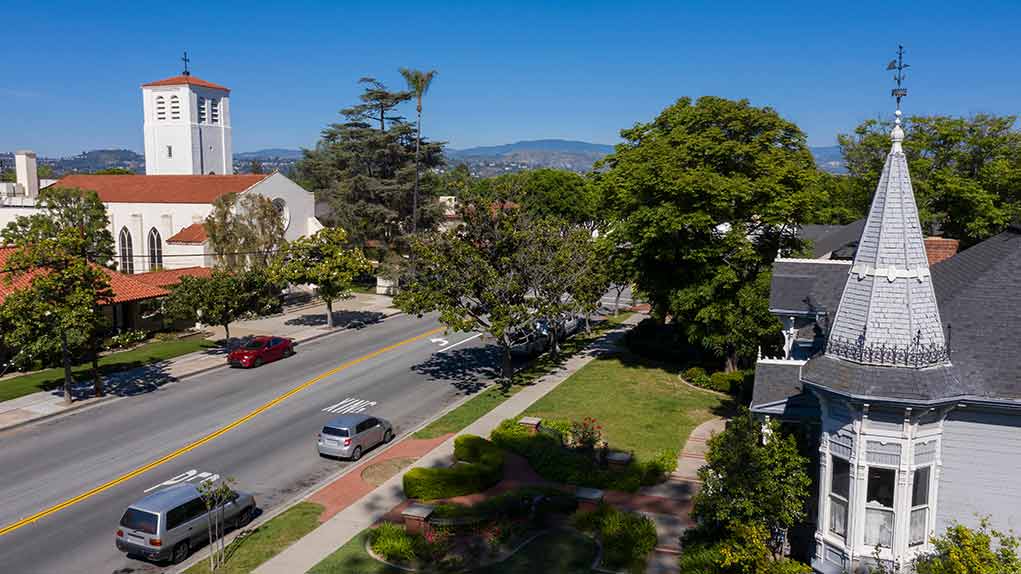
Nearly half of American adults maintain ties to Catholicism despite declining religious participation, revealing the Church’s enduring influence on national identity beyond just Sunday Mass attendance.
Key Takeaways
- 47% of U.S. adults report some connection to Catholicism, with only one-fifth identifying as practicing Catholics
- Cultural connections remain strong, with 9% identifying as “cultural Catholics” through ethnic or family ties
- Catholic converts (1.5% of U.S. adults) show higher devotion, with 38% attending weekly Mass compared to 28% of lifelong Catholics
- Hispanic Americans represent a growing and devoted segment of U.S. Catholics, now comprising 36% of Catholic adults
- 69% of Catholics affirm a personal relationship with Jesus Christ as essential to their faith identity
A Nation with Deep Catholic Roots
The latest research from the Pew Research Center reveals the extensive reach of Catholicism in American society, with nearly half (47%) of all U.S. adults reporting some connection to the Catholic Church. This connection spans various levels of engagement—from devout weekly Mass attendees to those who simply maintain cultural or family ties. While only one-fifth of Americans identify as Catholic by religion, the Church’s influence extends well beyond this core group, penetrating deeply into the cultural fabric of our nation and maintaining relevance across diverse communities that President Trump has worked to unite.
“It was striking to see how widespread the connection to Catholicism is,” said Gregory Smith, associate director of research at Pew Research Center.
Cultural Catholicism: Faith Beyond the Pews
The Pew study identified a significant segment of Americans (9%) who consider themselves “cultural Catholics”—individuals who don’t practice the religion but identify with it through ethnic heritage or family tradition. Another 9% were raised Catholic but have left the faith, while an additional 9% maintain connections through Catholic spouses, parents, or occasional Mass attendance. This diverse spectrum of affiliation demonstrates how Catholic identity extends beyond religious practice to shape cultural and familial bonds in America, reinforcing traditional values that conservatives have long championed.
— Preston Byrne (@prestonjbyrne) June 6, 2025
Varying Levels of Religious Devotion
Among self-identified Catholics, religious observance varies widely. Only 13% demonstrate high observance through practices like daily prayer, weekly Mass attendance, and annual confession. Another 13% rarely or never engage in these practices, while the vast majority (74%) fall somewhere in between. This spectrum of devotion reflects the complex relationship many Americans have with institutional religion, maintaining core beliefs while adapting religious practice to modern life. The data suggests that even as church attendance declines, Catholic values continue to influence American society.
The research indicates that a personal relationship with Jesus Christ remains central to Catholic identity, with 69% of Catholics affirming its importance. This figure rises dramatically to 91% among weekly Mass attendees. Similarly, half of all Catholics view devotion to the Virgin Mary as core to their faith, while 46% consider receiving the Eucharist essential—a number that increases to 83% among regular Mass attendees. These findings highlight how traditional Catholic beliefs persist even as institutional engagement fluctuates.
Hispanic Catholics: A Growing Influence
Hispanic Americans represent a significant and growing segment of U.S. Catholicism, with 40% identifying as Catholic and another 15% as cultural Catholics. Now comprising 36% of Catholic adults in America, Hispanic Catholics bring distinctive practices and devotions that enrich the Church’s presence. The research reveals that Hispanic Catholics are more likely than their white counterparts to wear religious items and pray the rosary, demonstrating a vibrant expression of faith that strengthens traditional Catholic practice in America despite challenges from secularization.
Converts to Catholicism, though a small segment at 1.5% of U.S. adults, demonstrate stronger religious commitment than cradle Catholics. Nearly half (49%) joined the Church for marriage or partnership reasons, yet they show higher rates of Mass attendance (38% weekly) than lifelong Catholics (28%). This pattern of heightened devotion among converts underscores how the Church continues to attract committed followers even in an increasingly secular society. The persistence of Catholic identity despite challenges reflects the enduring appeal of its traditions and values to Americans seeking meaning and community.
Challenges and Resilience
The Catholic Church faces significant challenges, with 43% of those raised Catholic no longer identifying with the faith. Many cite value mismatches or simple disinterest as reasons for leaving. Additionally, 62% of Catholics view abuse cases as an ongoing concern, though 68% believe such abuse is no more common among Catholic clergy than in other faith groups. Despite these challenges, the expansive reach of Catholic influence in American culture demonstrates remarkable resilience, suggesting that the Church’s impact on national identity extends far beyond Sunday Mass attendance.
“I couldn’t walk into a church,” admitted Susan Jackson, reflecting the complicated relationship many have with the institution while maintaining connections to the faith.
The comprehensive survey, conducted with 9,544 U.S. adults, including 1,787 Catholics, reveals that despite declining institutional engagement, Catholic identity remains deeply ingrained in the American experience. Whether through devout practice, cultural connection, or family heritage, Catholicism continues to shape the values and worldview of nearly half the population, demonstrating that faith traditions remain influential even as expressions of religiosity evolve. This enduring Catholic presence continues to be a stabilizing force in our society.




